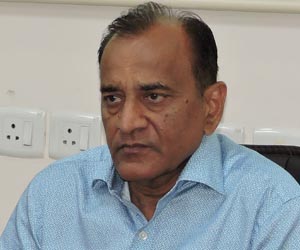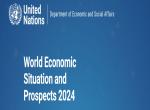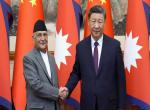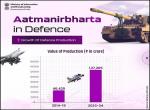Somebody is going to win and someone will lose in the 2019 general election, but both the winners and the losers will have to face challenges thereafter — not just at the personal level but ones that concern the nation. And these challenges have to be converted into opportunities if the country is to progress and consolidate the gains of the past years. They fall broadly into three categories, and while the issues can often overlap into more than one of these, they are a good enough roadmap to chart a better future.
The first set of challenges (and opportunities) is political in nature. Of them, managing coalitions effectively will be the foremost. In the last two decades, the country has had stable coalition regimes — the Atal Bihari Vajpayee-led NDA, the Manmohan Singh-led UPA and now the Narendra Modi-helmed NDA. The first completed its full term, the second went a step ahead by having two full consecutive terms, and the incumbent one is on course to a complete tenure as well. This is no small achievement as coalition regimes had failed miserably in the past, whether it be that of the Janata Party with Morarji Desai in the lead or the VP Singh-crafted Janata Dal or the fronts led by HD Deve Gowda and IK Gujral. While the first collapsed due to internal dissensions, the latter three fell because of withdrawal of outside support from allies.
However, present-day coalitions, whether comprising the ruling party or the Opposition, have had problems. Both the Bharatiya Janata Party and the Congress are grappling with it — the first in managing some of its partners and the second in prospecting partners and holding on to the existing ones. On the other hand, regional satraps are busy concocting their own ‘federal alliance’, whose contours are as mysterious as the Black Hole. Once the dust of the 2019 poll settles down the winner and the loser will have to devise ways to ensure partnerships based on common grounds other than seeking the decimation of their chief rivals. Obviously, the loser will have a bigger task at hand since it would encounter the sight of rats abandoning a sinking ship. The opportunity that lies in the two scenarios — winning and losing — is for the main parties to add maturity and depth to relationships that ought to go beyond immediate politics.
The other political challenge is for parties to desist from indulging in hit-and-run. This tactic has unfortunately gained traction over the years as many leaders have discovered short-cuts to discredit their opponents by flinging an accusation repeatedly without any concrete material as backup, in the hope that doing so persistently will eventually tarnish the target’s image. Facts and figures are no longer sacred; wild allegations have become the norm. This has led to a sharp dip in the quality of debates and discussions, in Parliament and outside — including in television studios. There has been one other unfortunate fallout: Leaders who are inclined to serious discussion are upstaged by rabble-rousers and others who twist and turn facts to suit their immediate ends. It’s all done to appeal to the masses, but in reality the people are less than amused or impressed. The opportunity lies in tapping into this public sentiment and mending ways.
The third important political challenge lies in keeping out contentious issues of caste, religion and region from dominating those of larger national importance. This is easier said than done because our leaders have made it their second nature to exploit these factors over the decades since Independence. Even to this day, partnerships are being envisaged keeping equations of caste and religion in mind. Sadly, such exploitation has brought dividends too in the past. Anything — from a film to a book to a stray remark — can wreak havoc. But things have been changing over the years, even if not as dramatically as they should. The opportunity is for the more sensible politicians to understand the divisive nature of these short-term gains and seek political benefits in unity rather than in division. While neither caste, religion or region can be wished away, they can surely be deployed more positively.
Then, there are the challenges of an economic nature, and opportunities lie galore here too. Kickstarting large-scale employment growth is an immediate imperative and will be among the biggest tasks for the Union Government post-elections. While the incumbent regime has been pilloried by its opponents for allegedly failing on the job growth front — though the Government in its defence has cited job creation through Mudra loans, Make in India and Start-up India schemes — the fact that employment rates were far from satisfactory in the previous Governments, cannot be swept under the carpet. Clearly, the issue should be less of politics and more of economics, because the more it is the former the less a solution is possible.
Equally challenging is for politicians to resist the temptation of seeking refuge in populist economic measures to gain instant affection of the constituents. Loan waivers of various kinds is a good example of this thoughtless exercise. While Governments at the Centre and in the States are free to write-off loans to the deserving, such as farmers who are burdened with debt and have no means to repay, they have to consider the impact such decisions have on the financial health of the State and the nation. In any case, loan waivers are not a long-term solution to an agrarian crisis. Unfortunately, in recent weeks we have seen a re-run of the populist measure. The opportunity lies in realising the futility of band-aid kind of solutions and then working towards bringing about systemic changes that will reduce and dependence of small and marginal farmers on loans — and empower them to repay those that they take.
Constant focus on enhancing infrastructure, improving the health of the banking sector through methods to reduce non-performing assets, and improving the quality of education at all levels, are all medium-to-long-term processes whose results are seen after a while. But Governments and parties looking for immediate gains to tom-tom, are not surprisingly lax about sustaining these efforts. The incumbent regime at the Centre has done commendable work in proceeding with systemic changes — in infrastructure development, in agrarian reforms, in public health, in education, in direct benefit transfers etc. — but slippages are only round the corner that must be avoided.
Finally, there are the social challenges. Reforms in the private space are always difficult as they lend themselves to criticism of meddling in personal matters. We have seen this happen in recent days when the Government sought to enact a legislation to criminalise instant triple divorce prevalent in Muslim society and which victimises the woman. Another manifestation of similar anger — this time in favour of Government intervention — has been witnessed among the generally well-off caste groups demanding reservations in Government jobs and education. It has happened in Gujarat and Rajasthan, among others. And if it is not reservation, then there are ‘sentiments’ of communities to be considered. A film can be declared offensive on the ‘sentiment’ ground; a book can be pronounced unreadable because it can cause caste or communal tension; a statement can be found to be insulting to some caste or community icon. There is no doubt that at times there is mischief behind mocking at the sentiments. But more often than not, it is political leaders and their politics that foment trouble.
The ‘reform, perform, transform’ slogan given by Prime Minister Narendra Modi makes eminent sense. The challenge and the opportunity lie in taking this forward, regardless of the Government that assumes charge in mid-2019.
(The writer is an author, senior political commentator and public affairs analyst.)
(The paper is the author’s individual scholastic articulation. The author certifies that the article/paper is original in content, unpublished and it has not been submitted for publication/web upload elsewhere, and that the facts and figures quoted are duly referenced, as needed, and are believed to be correct). (The paper does not necessarily represent the organisational stance... More >>
Image Source: http://s.wsj.net/public/resources/images/BN-BV627_ivote0_G_20140310072659.jpg











Post new comment